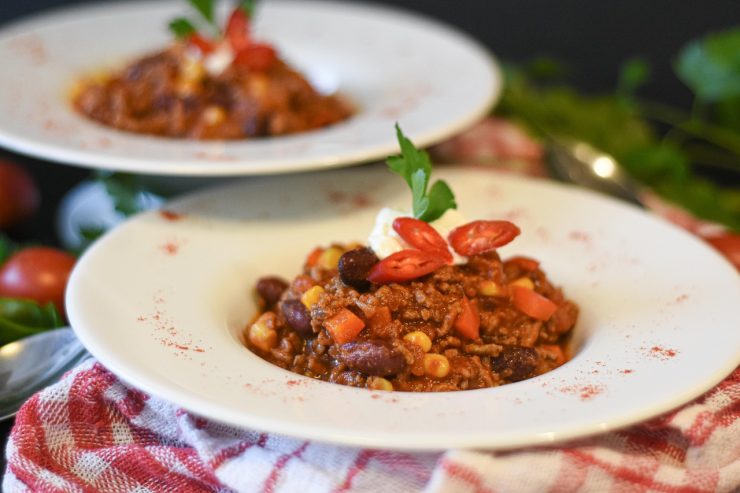Travel often offers a unique perspective on health and diet, especially when observing how people eat and live in different parts of the world. In many regions of Southern Africa, one noticeable pattern is the overall leanness of the population—particularly among men, who tend to have small waists and little abdominal fat. While women in these regions may have naturally curvier hips, they generally do not exhibit the same signs of obesity common in industrialized countries.
Despite diets that are high in carbohydrates, many populations in Africa remain remarkably healthy. However, these carbohydrates come from whole, unprocessed foods like yams, sweet potatoes, maize, and plantains—rather than from refined grains and sugars. This difference seems to play a significant role in supporting healthy body weight and metabolic health.
Researchers studying intestinal cancers have found that certain African populations experience extremely low rates of colon cancer, along with better cardiovascular health and lower incidences of obesity and diabetes. Much of this is believed to be connected not just to dietary fiber, but to specific compounds in these starchy root vegetables—particularly prebiotics.
What Are Prebiotics and Why Do They Matter?
Prebiotics are compounds found in certain foods that feed the beneficial bacteria in the gut. These substances help maintain a healthy microbiome, which influences everything from digestion to immune function. Prebiotics also contribute to the production of short-chain fatty acids (SCFAs), including butyrate, acetate, and propionate—compounds that have powerful anti-inflammatory and metabolic benefits.
Common prebiotic sources include resistant starches, which are a special type of carbohydrate that resist digestion in the small intestine. Instead, they pass into the large intestine where they act like soluble fiber, feeding good bacteria and supporting digestive health.
The Benefits of Resistant Starch
Resistant starch is found in a number of whole foods including:
-
Unripe bananas
-
Cooked and cooled potatoes, rice, and sweet potatoes
-
Legumes
-
Whole grains and seeds
Interestingly, cooking and then cooling certain starches increases the amount of resistant starch they contain. Even when reheated, these foods retain much of their beneficial starch structure.
Once fermented in the gut, resistant starch promotes the production of butyrate—a key SCFA that supports colon health, reduces inflammation, and may help manage conditions like Crohn’s disease, IBS, and ulcerative colitis. Butyrate also improves insulin sensitivity, supports weight management, and may even play a role in protecting brain health.
Sweet Potatoes: A Nutritional Powerhouse
Sweet potatoes are one of the best sources of resistant starch and are rich in important nutrients like vitamins A, C, and B6, as well as potassium and fiber. Despite their starchy nature, they have been linked to improved blood sugar control and metabolic health, largely due to their prebiotic fiber content.
It’s important to note that sweet potatoes and yams, while often confused, are not the same. Nutritionally, both are valuable, but sweet potatoes are more commonly consumed in Western diets and are more widely studied for their health benefits.
Try This: Spicy African Sweet Potato Chili
This comforting and flavorful chili highlights the benefits of sweet potatoes in a simple and satisfying dish. And thanks to the cooling and reheating process, it also offers a boost of resistant starch.
Ingredients:
-
1 Tbsp olive oil, butter, or ghee
-
1 onion, sliced
-
1½ lbs ground turkey thigh, chorizo, or spicy Italian sausage
-
2 Tbsp chili powder
-
1 Tbsp paprika
-
1 Tbsp cumin
-
2–4 cloves garlic, minced
-
3 medium sweet potatoes, chopped (skin on optional)
-
2 cups water
-
4 cups chicken or bone broth
-
1 small can black beans
-
¼ tsp cayenne or red pepper flakes (optional)
-
Salt and pepper to taste
-
Pumpkin seeds for topping
Directions:
-
Heat oil or butter in a large pot over medium-high heat. Add onion, ground meat, chili powder, and other seasonings. Cook until the meat is browned and crumbly. Remove meat and set aside.
-
In the same pot, add sweet potatoes, garlic, water, and broth. Bring to a gentle boil and simmer for 10–15 minutes.
-
Use a potato masher or immersion blender to partially blend the sweet potatoes for a creamy texture.
-
Return the meat to the pot along with the black beans and red pepper flakes. Simmer until heated through.
-
Top with pumpkin seeds before serving.
This dish is not only hearty and flavorful—it also supports gut health, metabolism, and overall wellness. Perfect for preparing in large batches and enjoying as leftovers, with the added bonus of even more resistant starch the second time around.











